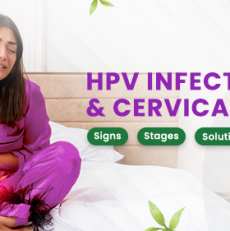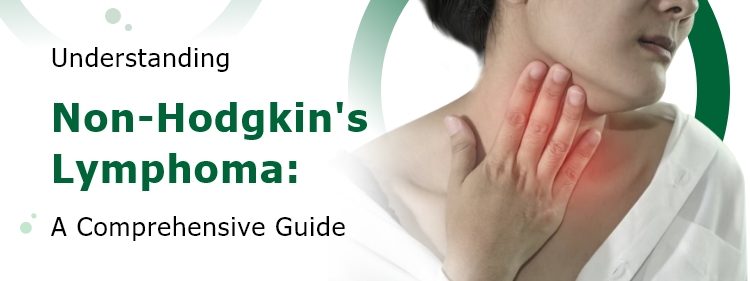
May 9, 2025
HPV Infection and Cervical Cancer: Signs, Stages, and Solutions.
August 17, 2023 - admin

Non-Hodgkin's Lymphoma (NHL) is a type of cancer originating in the lymphatic system, part of the body's immune system. It is a relatively common cancer, accounting for about 4% of all cancer cases in the United States. The lymphatic system includes the lymph nodes (small glands that filter lymph), lymph vessels, tonsils, adenoids, spleen, and thymus. NHL can start in any of these areas and then spread to other body parts. This comprehensive guide aims to thoroughly understand non-Hodgkin's Lymphoma, its causes, symptoms, diagnosis, treatment, and management.
The lymphatic system is a network of tissues and organs that help rid the body of toxins, waste, and other unwanted materials. It transports lymph, a fluid containing infection-fighting white blood cells, throughout the body. Lymph nodes are small, bean-shaped structures that produce and store cells that help fight infection, including lymphocytes (a type of white blood cell).
Non-Hodgkin's Lymphoma is a cancer that starts in the lymphocytes. There are two main types of lymphocytes: B lymphocytes (B cells) and T lymphocytes (T cells). Most cases of NHL involve B cells. NHL can be either indolent (slow-growing) or aggressive (fast-growing).
The exact cause of NHL is unknown, but several factors may increase the risk of developing this disease:
The signs and symptoms of NHL can vary widely, but may include:
A doctor will conduct a physical examination to diagnose NHL, ask about the patient's medical history, and order blood tests and imaging tests such as X-rays, CT scans, or PET scans. A biopsy of the affected lymph nodes or other tissues is usually necessary to confirm the diagnosis.
The staging of NHL involves determining the extent of the disease. It is based on the number and location of affected lymph nodes and whether the disease has spread to other organs or tissues.
The treatment of NHL depends on the type, stage, and location of the disease, as well as the patient's age and overall health. Treatment options may include:
Non-Hodgkin's Lymphoma is a complex disease requiring a comprehensive diagnosis and treatment approach. Early detection and timely treatment are crucial for the best possible outcome. If you or someone you know is experiencing symptoms of NHL, seeking medical attention as soon as possible is essential. With the right treatment plan, many people with NHL can achieve remission and lead healthy, fulfilling lives.
Tags:


Leave a comment